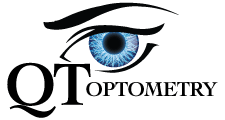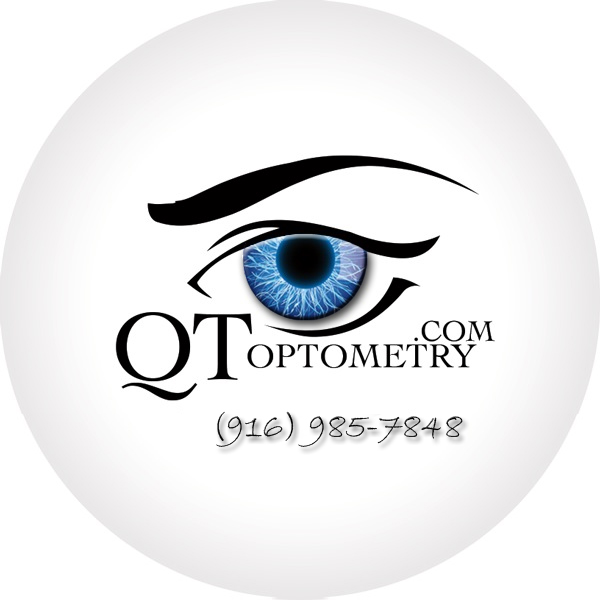Soft Contact Lenses
Older soft contacts are made of hydrogels, which are pliable hydrophilic (“water-loving”) plastics. The main properties of these hydrogels are its ability to absorb significant amounts of water to keep the lenses soft and supple. Different hydrogel lenses have a wide range of water contents. For example, hydrogels lenses with low water content are usually thinner than lenses with higher water content. These variation in lens thickness is important because some contact lens wearers feel more comfortable with thin, low water content lenses; whereas others feel more comfortable with thicker, moderate and high water content contact lenses.
Hydrogels soft contact lenses are further classified as either ionic or non-ionic. This attribute is significant because it determines whether the lens may be more or less prone to attract protein deposits. “Ionic: lenses have a negatively charged surface, thus will attract positively charged proteins in the tear film. “Non-ionic” hydrogel lenses are coated in order to reduce the negative surface charge, thus, reducing the attraction of protein deposits. Because contact lenses are medical devices, it’s regulated by the FDA and thus, are categorized by them accordingly into four classes. These different classes signified the lens’s water content, in tandem with its charges:
- Category 1 = low water, non-ionic
- Category 2 = high water, non-ionic
- Category 3 = low water, ionic
- Category 4 = high water, ionic
What Are Soft Contact Lenses?
Newer soft silicon hydrogel contact lenses has become very popular and has become the main go to for soft contact lens wear and care. Current studies showed that these newer silicone hydrogel contact lenses has more than six times the oxygen permeability to the cornea than older, regular soft lenses. This stark difference enabled the silicone hydrogel lenses to be much safer for use as as extended wear lenses!
Why Are Soft Contact Lenses Comfortable?
Soft contact lenses are comfortable because of its larger size, thus, able to “drape” over the cornea, as well as its water content/hydration within the lens matrix.
Why Doesn't Everyone Wear Soft Lenses?
Not everyone is a good candidate for soft contact lenses. Due to the different water content within the soft contact lens matrix, it may lead to dehydration upon the cornea; thus, leading to dryness. Furthermore, despite the spectacular advances with silicon hydrogel contact lenses, there are multiple cases of patients with cornea that are allergic/reactive to those lenses.
What's The Advantages of Soft Lenses?
Silicon hydrogel soft contact lenses has many advantages over “rigid” gas permeable contact lenses. Some of those advantage includes:
- Almost unsurpassed comfort.
- A lot less time to get used to having a soft contact lens on the eyes.
- Soft lenses are much more stable on the eye because of their increased size.
- Somewhat more difficult to retain particles (foreign body) between the contact lens and cornea.
What's Disadvantages of Soft Lenses?
Despite its multiple advantages of soft contact lenses, there are some inherent disadvantages to the wear and care of soft contact lenses. Below are some of those:
- Soft contact lenses have a shorter duration of wear.
- Soft lenses are a little more difficult to manipulate; insertion and/or removal of lenses.
- Soft lenses has a lot less oxygen permeability than modern “rigid” gas permeable contact lens materials.
- Soft lenses does not have all optical powers manufactured.
- Soft lenses requires special specifications (toric) in order to correct for astigmatisms greater than 0.75 diopters.
- Vision with soft lenses may be lower/worsen than with GP lenses.
- Soft lenses does not correct for irregular astigmatism very well.
- Soft lenses tend to attract more protein deposits.
- Soft lenses usually have an increased risk of contamination.
- Soft lenses may produce more allergic problems, if worn for prolonged intervals.
- Soft lenses has much higher incidents of eye dryness than GP.
- Soft lenses has lower exchange of tears.
- Soft lenses usually cause more eye related issues and ultimately leads to contact lens dropouts.
How Do I Care For My Soft Lenses?
Contact lens wearers has a plethora of choices when it comes to their contact lens solution or care system. This is because there are NO one system that is best suited for everyone who wears contact lenses. Having said that, the effectiveness of any contact lens cleaning/disinfection system is directly related and depended on your ability to follow the specific lens care instructions prescribed. Despite the multitude of cleaner systems, there’s primarily two types: multipurpose contact lens solutions and hydrogen peroxide based cleaning system. Each of these has their own features and benefits.
I Have Dry Eyes; Can I Wear Soft Lenses?
Dry eyes are insidious; and unfortunately, soft contact lenses can definitely exacerbate patients with dry eyes. However, there are options!
- Hydrogen peroxide cleaning system has been proven to help reduce dryness.
- Dailies soft contact lens replacement modalities has worked wonders.
Am I a Candidate for Soft Contact Lenses?
Please contact Dr. Q @ QT Optometry for a full comprehensive contact lens evaluation to determine if you’d be a great candidate for soft contact lenses:
- Email: info@QToptometry.com
- Phone: (916) 985-7848
- Text: (916) 985-7848



